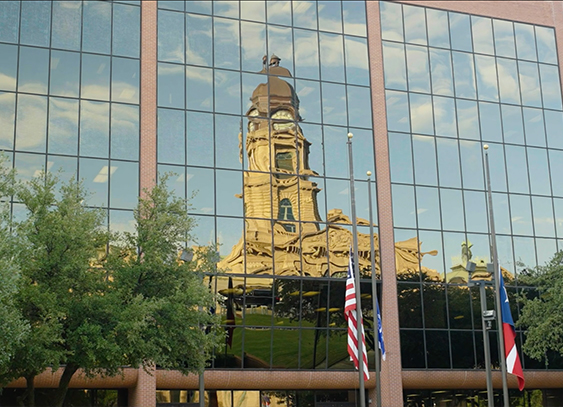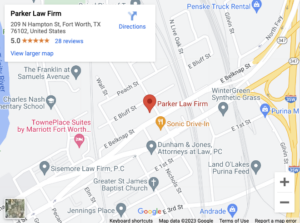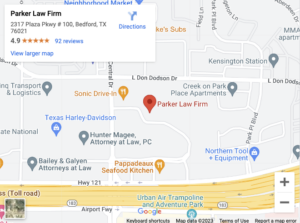
Negotiation is one of the most critical skills a personal injury victim (or their lawyer) can possess because it often leads to settlement. In such cases, an insurance company usually pays the claim. Even if the victim died in an accident, family members or their legal representative can negotiate a wrongful death settlement. Most claimants strongly prefer settling over going to trial.
Calculating the Value of Your Personal Injury Claim

How much is your claim worth? This might be the most important issue of your case. If you don’t know the value of your case, how do you know what amount to pursue? Although your lawyer will not have a crystal ball that can tell you how much your claim is worth, they should have experience handling claims like yours. If they don’t, find yourself another lawyer.
Your lawyer might be able to give you a ballpark estimate of the value of your claim after an initial consultation. Alternatively, they might need to perform a preliminary investigation. The more evidence that surfaces, the more likely it is that the estimate of the value of your claim will change.
Drafting and Sending a Demand Letter
Typically, the way you begin the negotiation process is to send a formal written demand letter to the party who will pay your claim. This is usually an insurance company – often the defendant’s liability insurer.
The best idea is to have your lawyer draft the demand letter for you. This letter should provide enough information to establish your claim. Lawyers are divided on the issue of whether or not a demand letter should include a specific dollar amount.
The Back and Forth of the Negotiation Process
Typically, after sending the demand letter, you can expect negotiations to work something like a ping-pong game. The back and forth of offers and counteroffers might proceed for a while.
On the other hand, the opposing party may ignore your claim and hope that you will forget the statute of limitations deadline. If this happens, or if the other side continuously issues ‘lowball’ offers, you might need to get tough with them.
Filing a Personal Injury Lawsuit in Texas
There are at least three reasons why you might want to file a lawsuit even if you still hope to resolve your dispute through settlement:
- To meet the statute of limitations deadline
- To qualify for participation in the pre-trial discovery process
- To show the other side that you mean business
Filing a lawsuit requires you to file a formal written complaint and to complete service of process against the defendant. Since the documentary requirements here are quite detailed and particular, you should consider hiring a personal injury lawyer to handle this matter on your behalf.
The Discovery Process
The discovery process allows you to gather evidence that is in the defendant’s possession. If the defendant refuses to cooperate, you can ask the court to compel them to produce the desired evidence. Remember, however, that the defendant will have the same right to compel you to produce evidence that is in your possession.
The discovery process often uncovers evidence that changes the entire dynamic of the negotiation process. It can tilt the playing field in favor of one party or the other through the sheer weight of evidence.
Alternative Dispute Resolution
Bilateral negotiation is not the only way to avoid going to trial to resolve a dispute. Alternative dispute resolution, known as ADR, is another way.
The two most popular forms of ADR are mediation and arbitration. Both of them require the agreement of both parties before they can begin.
- In mediation, the parties hire a third party to help them reach a negotiated settlement. The mediator cannot force the parties to come to an agreement, but they are typically skilled at suggesting ways to resolve disputes.
- In arbitration, the parties hire a private judge, known as an arbitrator, to resolve the dispute for them. Typically, the parties cannot appeal the arbitrator’s decision. The advantages of arbitration are that the proceeding is quicker and easier than court. Additionally, the arbitrator is typically more knowledgeable on the subject matter than a judge.
Other forms of ADR are available as well.
Finalizing a Settlement
Nobody finalizes a personal injury settlement on a handshake. You need a formal settlement agreement that each party signs. Your lawyer should draft this settlement agreement or at least review it very carefully before you sign it.
Once both parties have signed the settlement agreement, it becomes a binding contract. You can sue the other side for breach of contract if they fail to pay the settlement amount. Don’t forget, however, that a signed settlement agreement closes negotiations forever.
A Bedford Personal Injury Lawyer Can Negotiate a Fair Settlement for You
A seasoned personal injury attorney from Parker Law Firm Injury Lawyers could triple or even quadruple the value of your claim through skillful negotiation. Even if your attorney takes a certain percentage of your claim in legal fees, you are still likely to end up ahead when all is said and done. You have little to lose by scheduling a free initial consultation at (817)-503-9200.
Other Resources
- Evaluating Your Claim
- Personal Injury Case Process
- The Parker Law Firm Injury Lawyers Introduction
- How Do I Settle It Myself?
- What Happens In A Personal Injury Case In Texas?
- Why Should I Contact A Personal Injury Attorney Early On?
- Why Hire Parker Law Firm Injury Lawyers In Texas
- Why Should I Contact A Personal Injury Attorney Early On?
- Why is Parker Law Firm Injury Lawyers in Bedford Unique?


